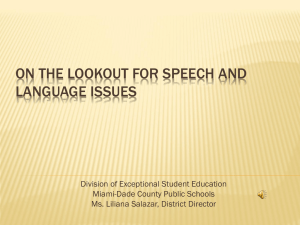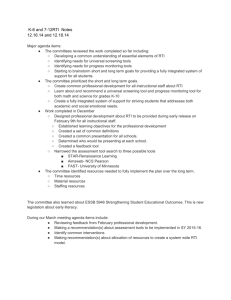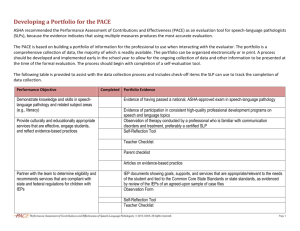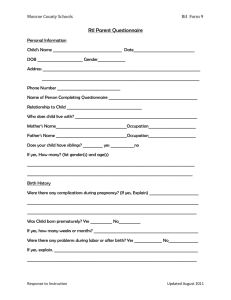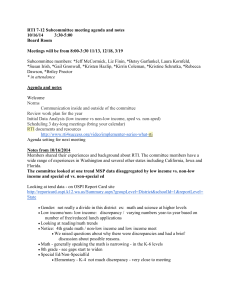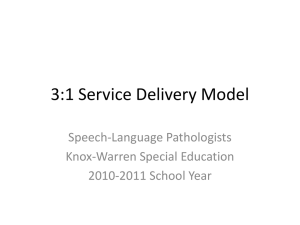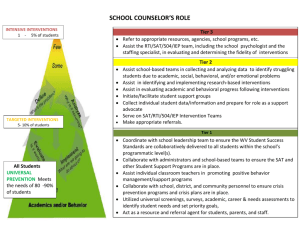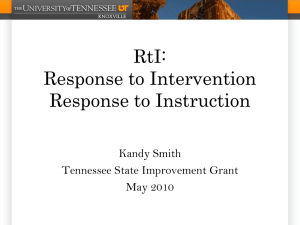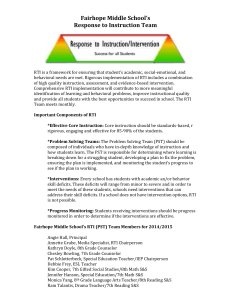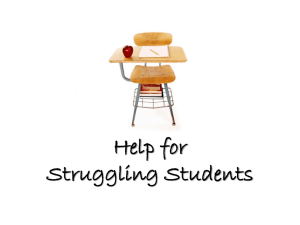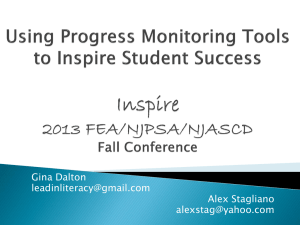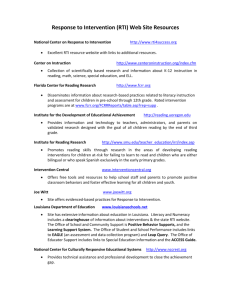SLP Collaborative Meeting Notes 10-16
advertisement
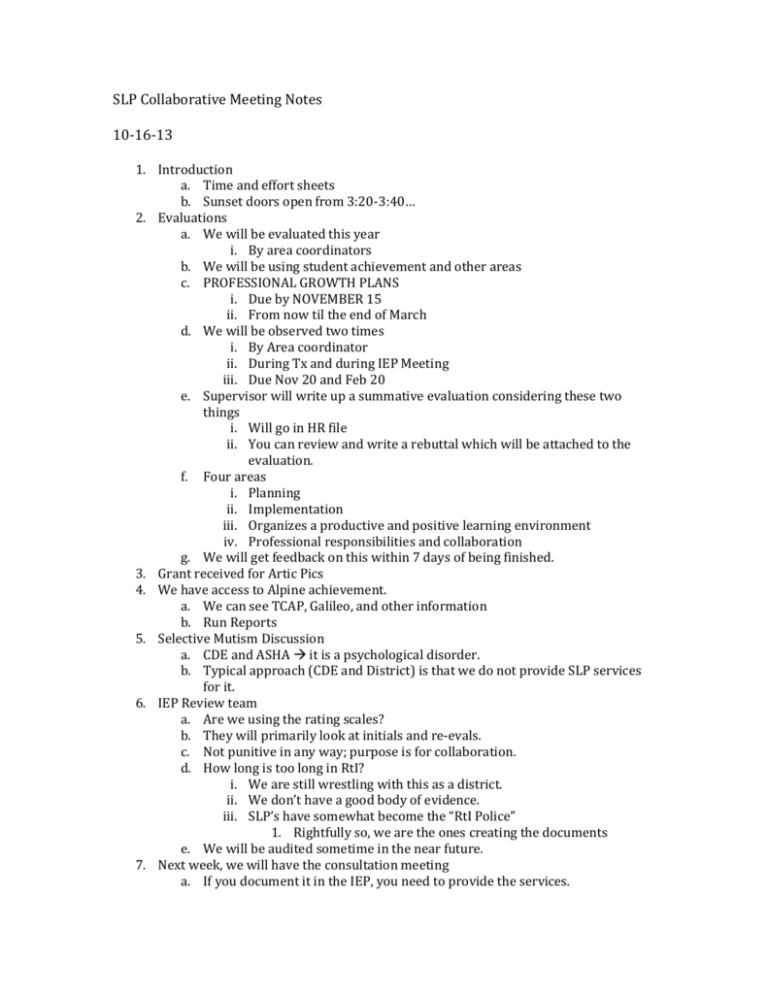
SLP Collaborative Meeting Notes 10-16-13 1. Introduction a. Time and effort sheets b. Sunset doors open from 3:20-3:40… 2. Evaluations a. We will be evaluated this year i. By area coordinators b. We will be using student achievement and other areas c. PROFESSIONAL GROWTH PLANS i. Due by NOVEMBER 15 ii. From now til the end of March d. We will be observed two times i. By Area coordinator ii. During Tx and during IEP Meeting iii. Due Nov 20 and Feb 20 e. Supervisor will write up a summative evaluation considering these two things i. Will go in HR file ii. You can review and write a rebuttal which will be attached to the evaluation. f. Four areas i. Planning ii. Implementation iii. Organizes a productive and positive learning environment iv. Professional responsibilities and collaboration g. We will get feedback on this within 7 days of being finished. 3. Grant received for Artic Pics 4. We have access to Alpine achievement. a. We can see TCAP, Galileo, and other information b. Run Reports 5. Selective Mutism Discussion a. CDE and ASHA it is a psychological disorder. b. Typical approach (CDE and District) is that we do not provide SLP services for it. 6. IEP Review team a. Are we using the rating scales? b. They will primarily look at initials and re-evals. c. Not punitive in any way; purpose is for collaboration. d. How long is too long in RtI? i. We are still wrestling with this as a district. ii. We don’t have a good body of evidence. iii. SLP’s have somewhat become the “RtI Police” 1. Rightfully so, we are the ones creating the documents e. We will be audited sometime in the near future. 7. Next week, we will have the consultation meeting a. If you document it in the IEP, you need to provide the services. b. If they need the consult to access general education, then put it in. i. it could be with gen ed teacher, special ed team, etc. c. Documentation of services will be addressed later. i. Continued conversation. d. Make sure that you are providing the services. 8. Screenings (also see flow chart) a. Screening: everyone is tested with the same measure. b. Teacher/parent questions: i. We are not doing screenings/answering questions ii. We do not do parent partnerships iii. We cannot pull out of classroom those that are not on IEPs thereby changing LRE, etc. iv. This is not a comfortable situation c. What to do with the questions from teachers and parents? i. Educate staff in building concerning developmental norms ii. Ask the question: What is the educational impact? See the Flow chart 1. Fluency, Voice, Articulation a. With information, the key question is, “Do you expect a disability?” b. For these areas, RtI can be skipped for an evaluation at the Kindergarten level. i. These areas are closely related to educational topics at this level. 2. Language a. RtI i. Ideas for teachers: reading comprehension focus, check for understanding, give shortened directions, ii. Even though some of these are accommodations, they can give you good data after they are in place. b. Follow the data (7 points). c. iii. Do not isolate a child in the classroom… That moves into evaluation. 1. Take a reading group in the classroom; AND listen to ALL the kids in the group—not just the target child. 2. YOU NEED PARENT PERMISSION to watch an individual child. iv. Ask the parents: “Do you want an evaluation?” 1. If they just want you to listen, then doing so IS an evaluation. 2. Make sure they are aware of this distinction. v. Write a PWN 1. For not performing an evaluation. a. Make sure you have enough data to say why you are not performing an evaluation. b. You can suggest we recheck in 6 months. c. Or recommend waiting for RtI data. 2. For evaluations: a. Have them sign a permission b. With permission to evaluate, you can provide intervention services and collect data as part of your eval (especially if parents are wanting help soon). d. TALK TO LYNEA or AREA COORDINATORS for questions about specific cases that are tricky. e. Child Find does screenings i. Parents can perform a screening with them (for preschool). ii. Child Find will communicate the dates with us 9. Building Collaboration (for 29 administrator hours) a. Keep track of your own hours at the buildings and with SLP collaborations (**A TOTAL OF 15.5 HOURS**) b. Laura Emlen: i. Will do a sort of an /r/ meeting that can be used for hours. ii. She has 30 different ways of teaching /r/. iii. Also learning how to keep the children engaged and motivated when they fail. iv. Laura will email to host a meeting 1. Maybe on a Wednesday? 2. Potentially a group? c. Joanne i. Teaching adolescents engaged while teaching them language. ii. Has a video from ASHA. iii. Email d. IMASH talk meeting?
